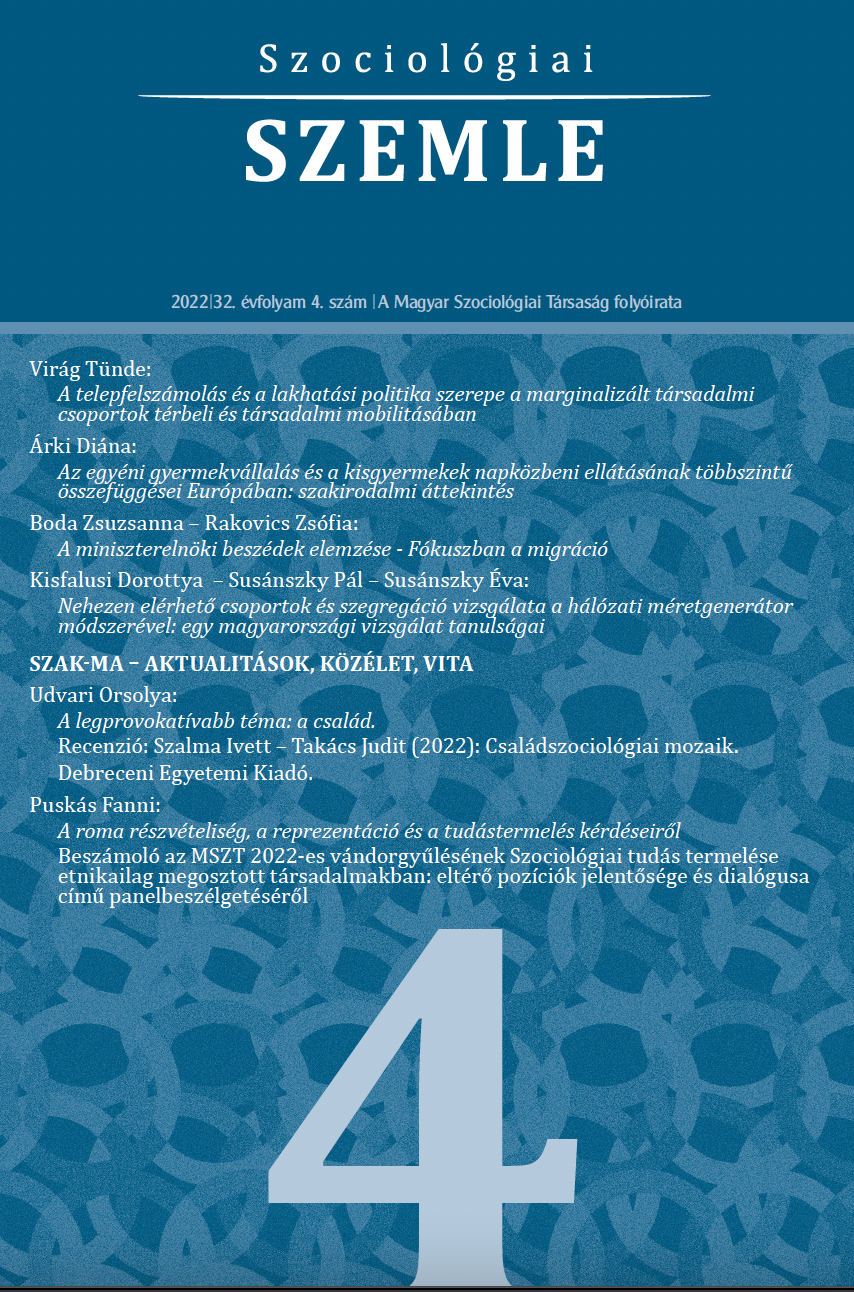The role of settlement rehabilitation programmes and housing policy in the socio-spatial mobility of marginalized groups
Abstract
Based on a case study in a former socialist industrial town this paper analyses the changing spatial and social position of Roma families. Through a historical and contemporary analysis of settlement rehabilitation programmes, I demonstrate how policies framed by the national government are interpreted and implemented at the local level according to local needs and socio-historical embeddedness, and the role of discretionary decisions of street-level bureaucrats in this process. The study shows how the municipality controls the social and spatial mobility of marginalised groups through the mechanisms of social housing distribution, the possibility of participation in development and public works programmes; by racialising, containing and disciplining those who are seen as undeserving, while the deserving are provided with the possibility of spatial and social mobility. I analyse how these practices are linked to institutional legacies of socialist-era policies targeting Roma communities through control and displacement, how these are interwoven with neoliberal paternalistic poverty governance and contribute to the maintenance of socio-spatial order within the town based on the segregation of the socially vulnerable lower-middle class from marginalised groups.





